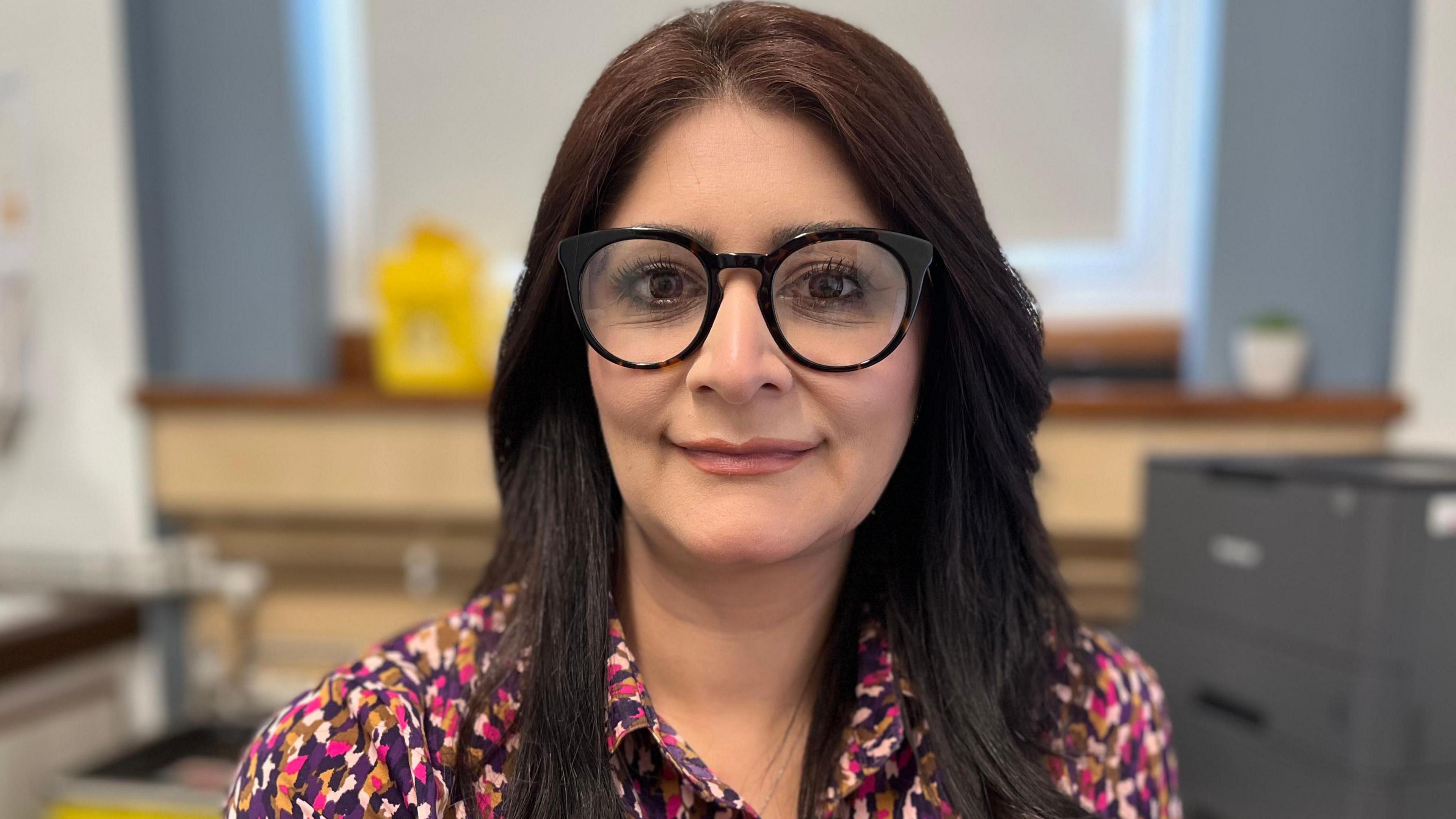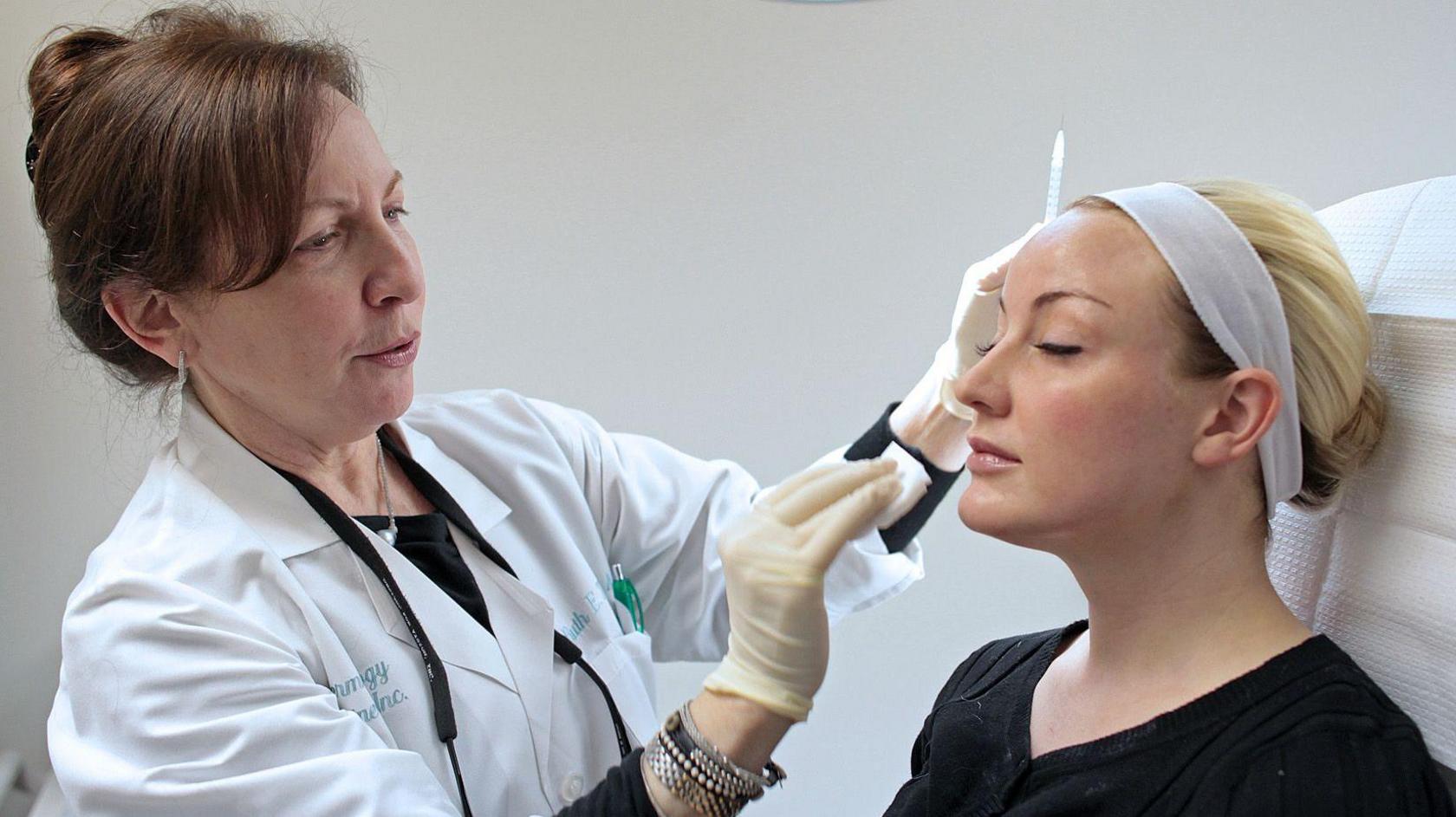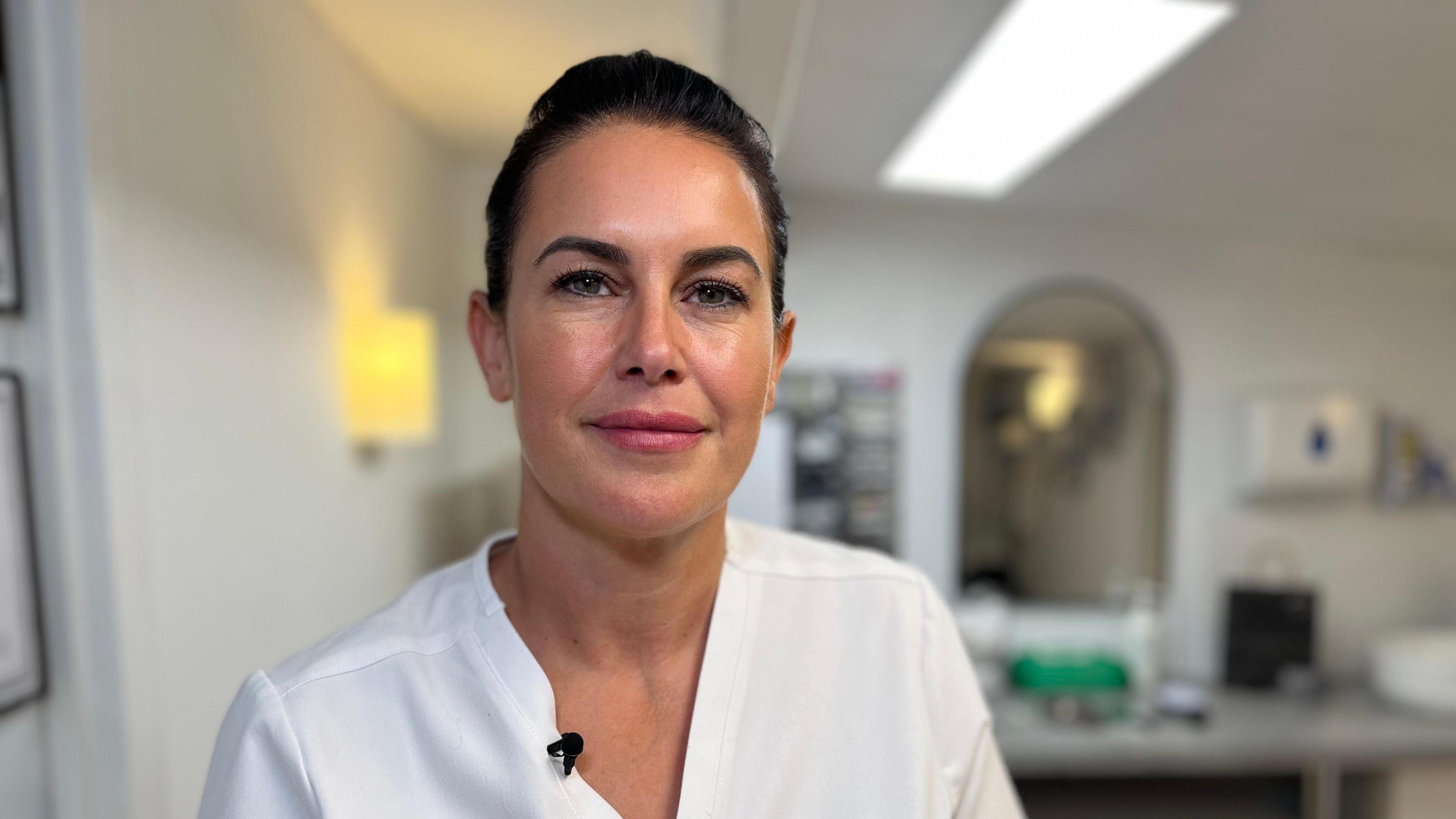Unregulated 'Botox' cases are frightening, says GP

Dr Shabina Qayyum said it was "wholly unacceptable" for anyone to administer medication, such as Botox, without being qualified
- Published
At least four people have been admitted to hospital after complications related to cosmetic procedures using the botulinum toxin.
Peterborough City Council has begun an investigation into reports of people experiencing botulism symptoms, thought to be from unlicensed or counterfeit Botox-like products.
The cases were not linked to any beauty or cosmetic salons in the city, but to private practitioners working in their own or client's homes.
Dr Shabina Qayyum, the cabinet member for adult health and social care on the authority, said it was "incredibly frightening" to see an "unregulated medication" being administered.

Some of the adverse reactions in the botulism cases could include difficulty swallowing or breathing, blurred or double vision and slurred speech
The UK Health Security Agency and the NHS were working with the council to stop the practitioners linked to the cases from carrying out further procedures.
Dr Qayyum, a Labour councillor and GP in the city, said four people had been admitted to hospital in the last week after cosmetic procedures believed to have taken place in back gardens or sheds.
She said some of those affected had been admitted to an intensive care unit for ventilatory support.
"The complications around this can be detrimental to someone's life and can put someone's life at risk," she said.
"Botox paralyses the muscles to achieve a cosmetic look from an aesthetic perspective, but if you're using an unregulated form of Botox [botulinum toxin], it can have risks that paralyse the airway muscles... that can be very concerning indeed."
She added some medical staff were having to deal with "unfamiliar territory" as the substance used was not regulated.
Dr Qayyum also urged people undergoing cosmetic treatments to go to someone who was medically qualified.
'Scary place'

Practitioner, Danielle Black, said she wanted to make sure the standards in the industry were "much better than they are currently are"
The botulinum toxin, used in products such as Botox, can be used to temporarily paralyse the movement of muscle.
It is a medication that can be used to treat conditions such as migraines and muscle spasms or for cosmetic preferences such as reducing the appearance of wrinkles.
Danielle Black, an aesthetic practitioner in Oundle, Northamptonshire, said the industry could be a "scary place".
"We have people training online, learning injection techniques and how to use the botulinum toxin without practicing on live people or understanding the depth of the injection or the anatomy and physiology of the face."
Ms Black said there was a huge range in standards of training and urged people to "walk away" if they felt something "just doesn't feel right".
Allergan Aesthetics, a manufacturer and sole owner of the BOTOX trademark said it was aware of recent reports of suspected botulism in patients in the North East who received injections of a product, being referred to as Botox.
They said they had received notification that the product administered in the cases was counterfeit, "further underpinning the importance of ensuring you are acquiring a genuine product through reputable and trusted channels".
Get in touch
Do you have a story suggestion for Peterborough?
Follow Peterborough news on BBC Sounds, Facebook, external, Instagram, external and X, external.
Related topics
- Published26 July
